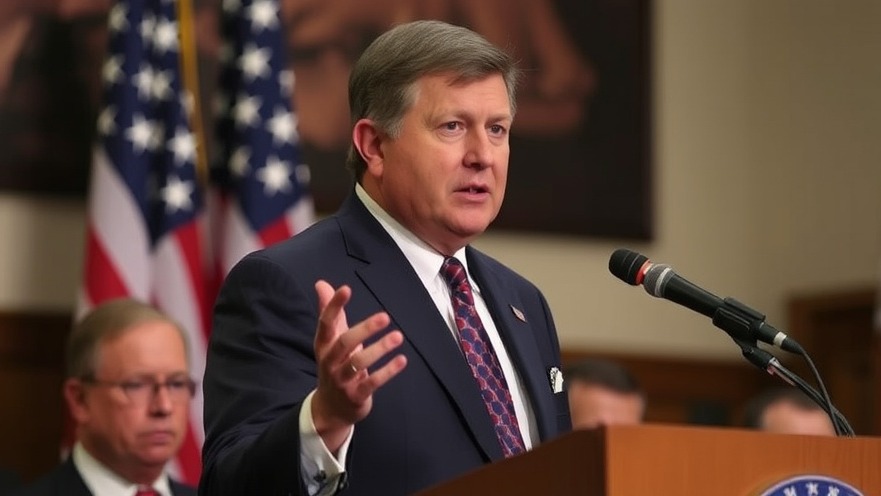
The Departure of a Texas Political Veteran
Representative Michael McCaul, a familiar name in Texas politics, has announced that he will not seek reelection in 2024. Having served in Congress for two decades, McCaul's departure marks the end of a significant chapter in the state's political landscape. Known for his work on national security and foreign affairs, particularly in his role as the ranking member of the House Foreign Affairs Committee, McCaul's influence has been notable.
Understanding the Impact on Texas Politics
This announcement comes at a pivotal time for Texas, with the upcoming 2024 elections poised to shape future governance. The race for his congressional seat will likely attract numerous candidates eager to step into the role, reflecting the intense political aspirations within the state. As Texas continues to grow in population and political significance, McCaul's exit opens the door for potential shifts in policy focus and party dynamics.
A Legacy Defined by National Security and Bipartisanship
Throughout his tenure, McCaul has championed issues related to border security, immigration reform, and cybersecurity. His approach often sought bipartisan support, a rarity in today's polarized political climate. By stepping away, he leaves behind not just a legacy of commitment to these issues, but also the challenge for his successor to navigate the complexities of Texas politics amidst an evolving national landscape.
Future Predictions: A Changing Political Landscape
As we look ahead, the impact of McCaul’s retirement will reverberate through Texas political circles. Candidates vying for his seat will need to address critical Texas issues—immigration policy, gun laws, and economic challenges—while also resonating with an increasingly diverse electorate. The changing demographics of Texas suggest that candidates must engage with a wider variety of voter concerns, making it essential for them to understand not only traditional Republican values but also emerging social dynamics.
The Context: National and Local Implications
Nationally, McCaul’s departure from Congress could signal shifts in Republican strategy as the party prepares for the 2024 elections. With significant races ongoing, both the party leadership and voters are watching closely to see how this vacancy might influence congressional balance. Locally, however, candidates must contend with pressing Texas-specific issues: from public safety concerns to educational reform, making this congressional seat crucial not just for Texas, but for national politics as well.
Encouraging New Voices in Texas Politics
With significant political transitions, there lies an opportunity for new voices and ideas to enter the arena. This is particularly relevant in a state grappling with evolving challenges—ensuring effective governance that reflects the needs and aspirations of all Texans. Young voters, first-time candidates, and those from historically underrepresented communities can leverage this change as a stepping stone to bring about meaningful reform and engagement in the political process.
Final Thoughts
Michael McCaul's decision not to seek re-election leaves an impactful void in Texas politics but simultaneously opens up new avenues for discussions and reforms that align with the current needs of Texans. As the state gears up for the 2024 elections, the focus will undoubtedly remain on how candidates will address this changing political landscape and reflect the voices of a diverse constituency.
 Add Element
Add Element  Add Row
Add Row 



Write A Comment